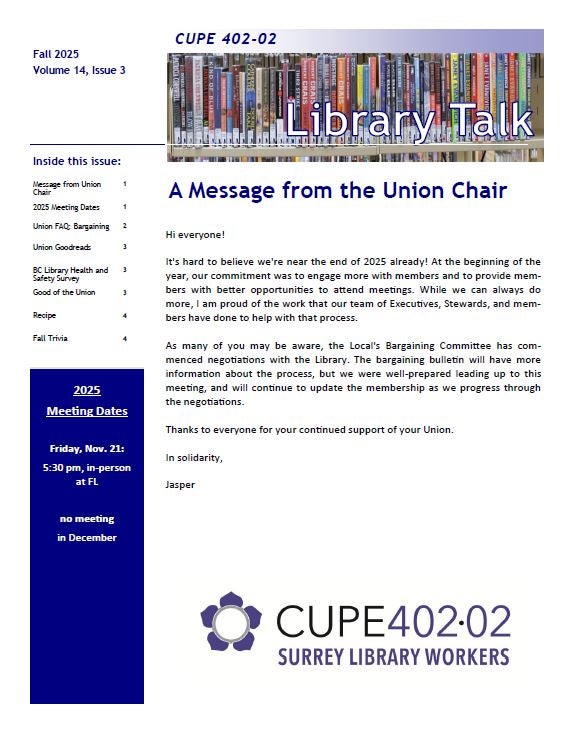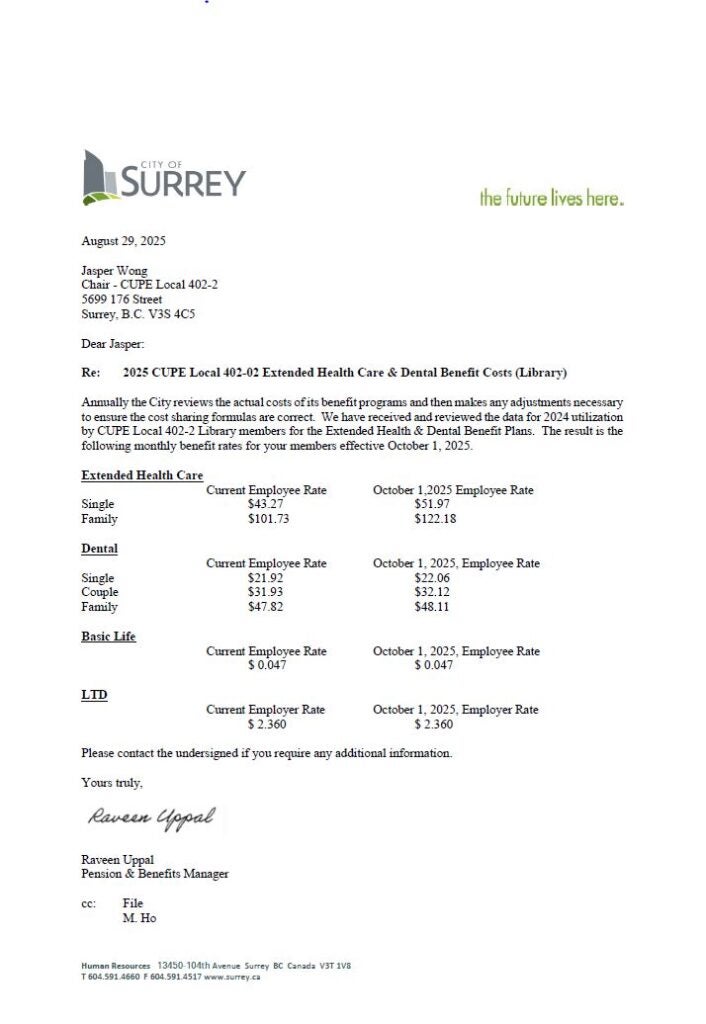Bargaining Bulletin #7
January 15, 2026
Your CUPE 402-02 Library bargaining committee has been hard at work over the last few months, here is a brief update of where we’re at:
We met with the bargaining committee from the Library several times prior to the holidays and exchanged proposals. We were able to take each other through our respective proposal packages, identify priorities, and begin dialogue on important issues.
We had two bargaining sessions with the Library last week and were able to come to agreement on some items. After some frank but purposeful discussions, we are hopeful that upcoming meetings will build on this momentum and that we can make some substantive progress.
In future bargaining sessions we will move into discussions on benefits and monetary proposals.
Your bargaining committee is doing the work and remains committed to continuing to push for the best agreement possible on behalf of the membership.
We will continue to keep you updated as negotiations progress. Watch for another bargaining update soon.
In the meantime, if you have any questions or concerns don’t hesitate to reach out.
In solidarity,
Your CUPE 402-02 Library Bargaining Committee
(Jasper Wong, Denise Parks, Kelly Kennedy, Robin Price, Amar Bains, Dave Lance)


